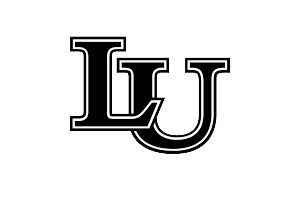Consulting Services Approach
In providing teaching and learning consultations, Learning Academy staff aim to be trusted partners who can facilitate reflection, provide perspective, offer strategies for consideration, and recommend resources toward continuous improvement. To best support faculty in their development, we operate on the following principles, which are supported by the Professional and Organizational Development Network in Higher Education’s Ethical Guidelines for Educational Developers.
Consultations Have a Formative Focus
In order to provide a safe place for faculty to engage in the kind of authentic reflection required to facilitate true growth, the Learning Academy does not engage in evaluation of faculty performance. Consultation services are designed to support development without risk of censure; summative evaluation is the responsibility of supervisors.
Improvement Efforts Resulting From Consultations Are Best Discussed Between Faculty and Their Supervisor
Faculty may use Learning Academy Consultation Services as a way to generate insights and improvement strategies that they then might choose to include in performance evaluations, promotion review, or Corrective Action Plans. Discussion of insights or improvement strategies generated through consultation are best shared with supervisors (or others) by the faculty member.
Consultations Available
Teaching and Learning Dialogue
A Teaching and Learning Dialogue is an individual consultation with Learning Academy staff that can involve one meeting or several, depending on the instructor’s goals and preferences. It is a collaborative conversation about some aspect of teaching and learning. The consultant’s role in the dialogue is to listen, facilitate reflection, and, potentially, suggests strategies, frameworks, ideas, or resources to support the instructor’s teaching goal(s). The dialogue may focus on one or more aspects of teaching and learning; examples include classroom strategies, course design, assignment design, grading, giving feedback, and instructor communication.
Classroom Observation
This engagement comprises pre- and post-observation meetings, a class observation, and a written summary of the engagement, which focuses largely on insights generated through observation, but also can include suggested strategies to enhance teaching and learning, depending on the instructor’s goals.
The pre-observation meeting centers on the instructor’s goals for the observation and any contextual information helpful for the observer.
The consultant then conducts a non-evaluative class observation using an ethnographic approach. This means the consultant considers the class a cultural context where patterns in communication and behavior exist, values and beliefs are demonstrated implicitly and, sometimes, explicitly, and these aspects of culture are central to the primary activities of the classroom – learning and teaching.
Recorded observations and formative feedback provided will focus on how students are learning and the corresponding instructional strategies used, instructor-student communication, and any other aspect of classroom dynamics relevant to the instructor’s goals or student learning. In the post-observation meeting, the consultant and instructor will share their respective reflections on the class session and, potentially, discuss strategies to enhance teaching and learning.
Small Group Instructional Feedback Consultation
The consultant conducts a 20-minute focus group with the instructor’s current students to gather formative feedback on instructor communication, classroom climate, and student learning. (This is typically done during class time). Afterward, the consultant shares student feedback with the instructor and, if the instructor desires, the two engage in a Teaching and Learning Dialogue as described above.

Teaching Consultation Request
Please fill out this form to request an individual teaching and learning dialogue, classroom observation, student focus group, RISE consultation, or VR consultation.












